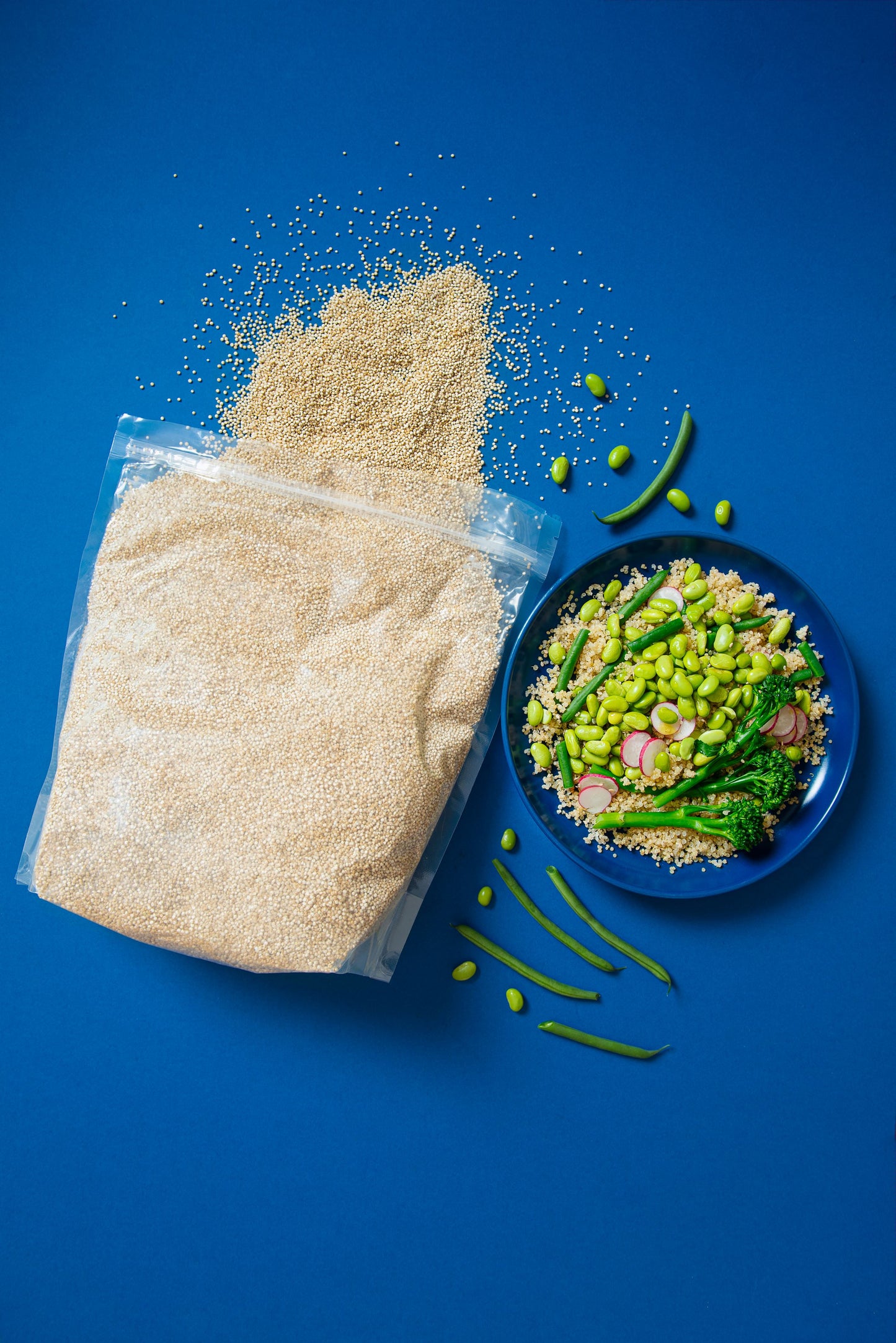
Quinoa can be a beneficial addition to a diet aimed at supporting muscle mass for several reasons:
-
High Protein Content: Quinoa is considered a high-quality plant-based protein source. It contains all nine essential amino acids required by the body for muscle growth and repair. Adequate protein intake is essential for building and maintaining muscle mass.
-
Complete Protein Profile: Quinoa is rare among plant foods as it provides a complete protein profile, meaning it contains all the essential amino acids in proper proportions. This makes it an excellent choice for individuals following vegetarian or vegan diets who may have limited options for obtaining complete proteins.
-
Muscle Recovery: Quinoa's protein content, along with its carbohydrates, vitamins, and minerals, helps support muscle recovery after exercise. Protein is crucial for repairing damaged muscle tissues, while carbohydrates replenish glycogen stores and provide energy for recovery.
-
Nutrient Density: Quinoa is rich in essential nutrients, including B vitamins, magnesium, and iron, which are important for optimal muscle function and growth. These nutrients play various roles in energy metabolism, oxygen transport, and muscle contraction.
-
Sustained Energy: Quinoa is a complex carbohydrate, meaning it releases energy slowly and steadily, providing a sustained source of fuel for workouts and physical activities. This can help maintain energy levels during exercise and support muscle performance.
-
Nutritional Balance: Quinoa is a versatile grain that can be combined with other nutrient-dense foods to create well-balanced meals. Pairing quinoa with vegetables, lean proteins, and healthy fats can provide a range of nutrients necessary for muscle growth and overall health.
However, it's important to note that building muscle mass also requires a consistent strength training program and an overall balanced diet. While quinoa can contribute to muscle development, it should be part of a comprehensive approach that includes regular exercise, adequate calorie intake, and a variety of nutrient-rich foods.
Consulting with a registered dietitian or a healthcare professional can help you create a personalized nutrition plan that supports your specific muscle-building goals.
